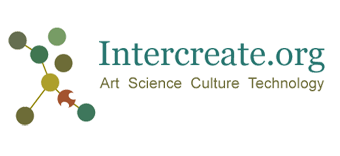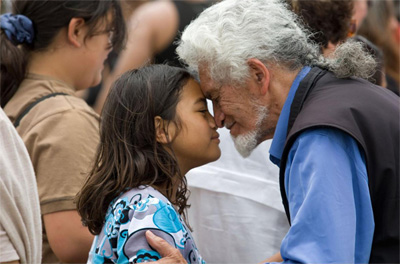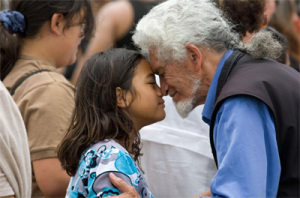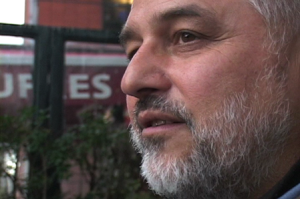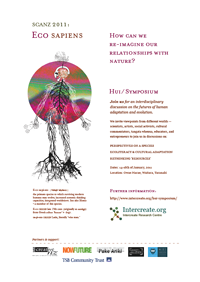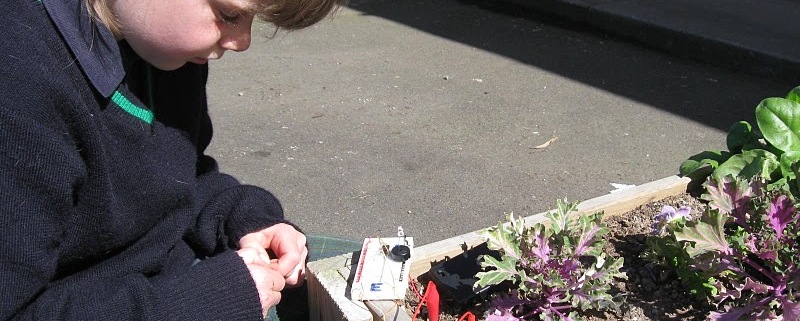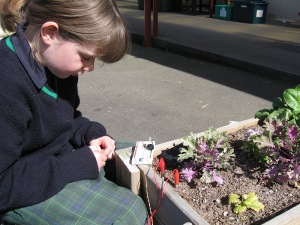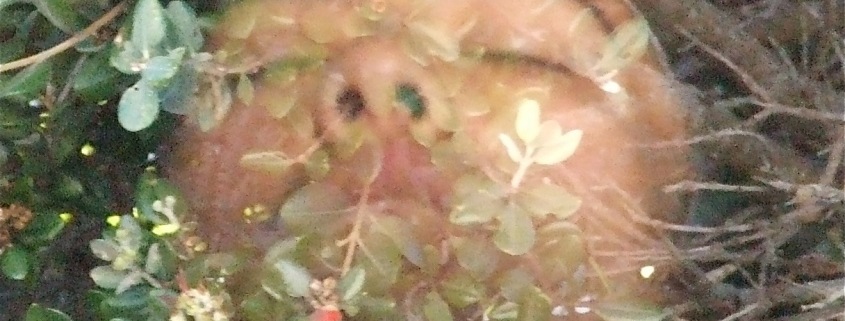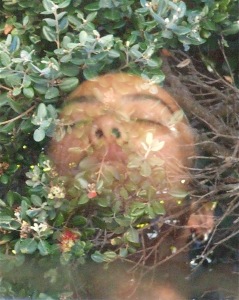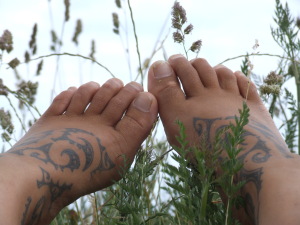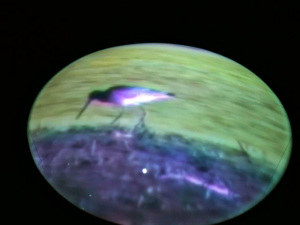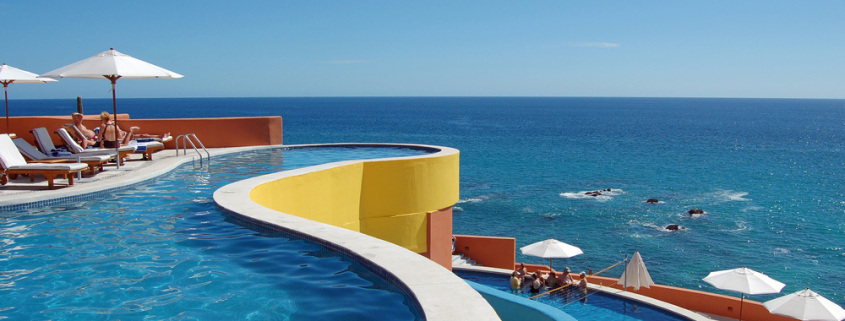Hui/Symposium Info
SCANZ 2011: Eco sapiens — Hui/Symposium Information
How can we re-imagine our relationships with nature?
Dates: 14-16th of January, 2011
Location: Owae Marae, Waitara, Taranaki
Time: Public persons or registrants must arrive by 9am at Marae gates on Jan 14 in order to register and join. Powhiri is at 10am.
Topic Areas: See summary here
Registration: See costs & register here
Topical Statement
As one of the early generations of the anthropocene — we are only just becoming aware of the recent effects of our species on the biosphere. Yet we find ourselves needing to adapt — and fast. A re-invention of ourselves as a beneficial (or at least benign) part of local and global complex ecologies is now required in order to regenerate these systems on which we depend.
By bringing together ideas and interventions from a variety of disciplines and understandings, can we address these complex issues more effectively? And what are the creative, inventive and inspiring toolkits that might help assist such a large-scale re-imagining of our cultural narratives we have of ourselves as a species?
In this event we seek to explore the creative spaces between cultures, ecologies, sciences, creative practises, psychology and technologies. In sharing our understandings, explorations and discoveries we hope to inspire ourselves to momentary fluidities of perception that might prove useful in nudging our own hardened cultural paradigms and silos of specialisation.
Keynote Speakers
Dr Te Huirangi Waikerepuru
Taranaki Kaumatua
Dr Te Huirangi Waikerepuru is a Taranaki kaumatua with a nationally significant record of contributions to the cultural life of Aotearoa including early work in developing Māori Television and ensuring a path for legislation of the Māori language to be held as a national taonga. He is Te kāhui kaumātua for the Tertiary Education Union Council, serves as a Guardian of Taranaki, and holds an Honorary Doctorate for his contribution to Māori submissions on the radio spectrum.
Dr Ruth Irwin
Ethics Philosopher focusing on Climate Change
Ruth Irwin is a Senior Lecturer in ethics with the Centre for Interdisciplinary Business Studies. Her research interests include Nietzsche, Heidegger, Deleuze and Guattari, and ecofeminism, modernity, and climate change. She engages with globalization, philosophy of economics, philosophy of education, and philosophy of technology. She is the author of three books and she has published journal articles and book chapters on Nietzsche, Heidegger, the critique of neoliberalism, philosophy of subjectivity, philosophy of education, philosophy of science and technology, globalisation, and the philosophical and cultural implications of climate change. Ruth Irwin is a foundational member of the Sustainability Research Group at AUT.
Roger Malina
Astrophysicist and proponent for art/science collaborations.
Roger Malina is an astronomer, with a speciality in space telescopes and observational cosmology. He is currently a researcher at the Laboratoire d’Astrophysique de Marseille, and Acting Director for the Observatoire Astronomique de Marseille Provence. For 25 years he has been the Editor of the Art-Science publication Leonardo at MIT Press and am Executive Editor of the Leonardo Book Series at MIT Press. He is the President of the Association Leonardo in Paris, and a member of the board of Leonardo/International Society for the Arts, Sciences and Technology in San Francisco. Malina is particularly interested in promoting the cultural appropriation on contemporary sciences and technology and new ways of creating conditions for art-science collaboration.
You are invited to an Interdisciplinary Event
The SCANZ 2011: Eco sapiens symposium event invites individuals from a number of different worlds —such as scientists, artists, social activists and community change agents, cultural commentators, educators, and tangata whenua. In a sharing of intersecting explorations we aim to facilitate connections, and extend perspectives on ourselves and our ecologies. Allowing new ways of approaching the issues we are facing to emerge.
Accordingly, a mixture of presentations, discussions, informal exchanges and workshops are planned. Roger Malina will be presenting from France on the citizen science of ‘Open observatories’, and Dr Te Huirangi Waikerepuru will speak on Maori conceptions of environment. The symposium will inspire and inform the residency that follows, and also provide opportunities for people to collaborate on projects beyond SCANZ.
Symposium Format
Friday 14th — Saturday 15th
The SCANZ 2011: Eco sapiens symposium will be initiated with a powhiri, or welcoming ceremony. After Dr Te Huirangi Waikerepuru speaks as our keynote, the main sessions of the symposium will be made up of short presentations of current or relevant explorations in participant’s work, with breakout discussions. Some shared session topics will be selected by the participants.
As a number of different disciplines will be present, we expect all participants to come with a respect for and willingness to engage with the differing viewpoints of other areas of specialisation. It will also be an all-pitch-in arrangement, where we will be organising and making our own meals together, and sleeping in the shared space of the wharenui (central meeting house) together, as is customary.
Sunday 16th — Open Workshop Day
As we wish for the event to feed inspiring ideas into the already existing local eco-energies, on the third day of the symposium/hui we plan to hold an open-to-all day of workshops and talks for which anyone can come and join. Please note that people joining us who have not already been on this marae, will need to arrive by 9am at the Marae Gates on the sunday, in order to be welcomed on for the day’s workshops.
See the Open Workshop Day page for more details.
For your networks
If you are interested in joining for the symposium, or know others who might be, please feel free to download this flyer and distribute.
